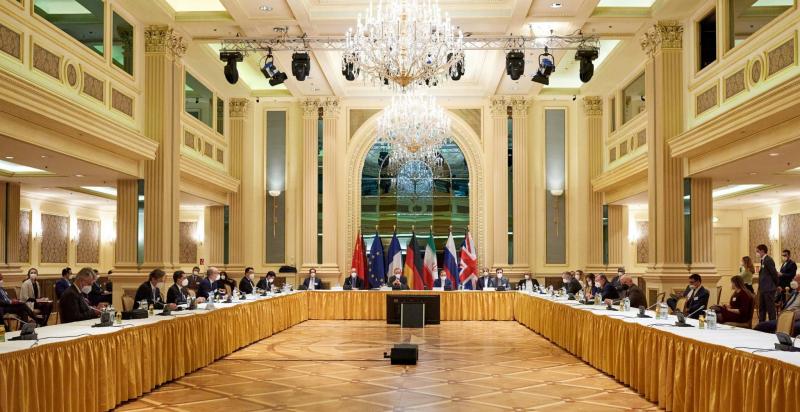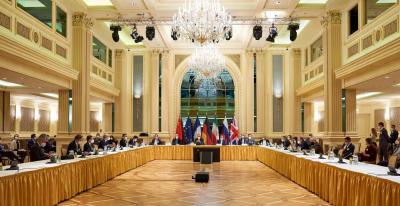Under the title "Rising Tension Between Washington and Tehran: Vienna Negotiations at Stake," Al Arabiya reported on the escalating tension between Tehran and Washington over the past two days, particularly following recent U.S. airstrikes targeting Iranian-backed militias along the Iraqi-Syrian border, which could jeopardize the Vienna negotiations regarding the nuclear agreement, which have yet to reach an understanding after six previous rounds.
The Biden administration announced yesterday that the airstrikes on facilities on both sides of the Iraqi-Syrian border were linked to militias with ties to Iran. It clarified that the strikes were retaliation for an increase in drone attacks targeting American personnel and U.S. interests in the region. U.S. airstrikes continued into the evening, and American officials confirmed that multiple rockets targeted a facility housing U.S. forces near the Al-Omar oil field in northeast Syria, prompting a U.S. artillery response aimed at the sites from which the rockets were launched.
European Diplomatic Efforts Stalled
This escalation comes at a time when diplomatic efforts led by Europe to bring both countries back to the nuclear agreement appear to be stalling. White House Press Secretary Jen Psaki stated yesterday that she was not aware of the potential timing for a new round of negotiations that began in Vienna last April. She said, "We have just completed the sixth round, but we do not yet have a schedule for new meetings." She also added, "I have nothing to announce regarding any further communications with Iran."
The six rounds of negotiations have yet to yield an agreement that would lead the U.S. to ease sanctions on Tehran in exchange for Iran scaling back its uranium enrichment activities.
Washington May Withdraw from Talks
Secretary of State Antony Blinken confirmed in a previous interview days ago that the Biden administration is "approaching" a withdrawal from the Vienna talks. He stated in a recent press interview that "if the Iranians continue to spin more advanced centrifuges at higher levels, we will reach a point where it will be extremely difficult practically to restore the framework of the original nuclear agreement," referring to the 2015 nuclear agreement.
Blinken, along with officials from the European Union, hinted that prolonging negotiations does not play in favor of the Iranian delegation.
Iranian Stance Stubborn
Meanwhile, the Iranian stance remains rigid, as Tehran wants the Biden administration to lift all sanctions imposed by former President Donald Trump, which the White House refuses. Iran has also begun to restrict access for International Atomic Energy Agency (IAEA) inspectors to key facilities in the country. The Iranian Foreign Ministry stated yesterday that it has not yet decided whether to grant the agency access to the surveillance cameras installed under monitoring operations.
With these cautious statements, particularly from Blinken, along with tensions over drones and strikes along the Syrian-Iraqi border, many observers fear that the resumption of the seventh round of nuclear negotiations, which Russian representative Mikhail Ulyanov previously hinted could begin in early July, may be delayed.




